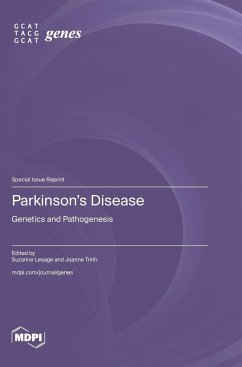Parkinson's disease (PD) is the second-most common neurodegenerative disease, currently affecting more than 10 million people worldwide. There is currently no identified treatment and only symptomatic relief can be offered. The disease has clinical and pathological definitions through its cardinal motor manifestations and substantia nigra neuronal loss associated with intraneuronal Lewy bodies, respectively. The molecular mechanisms that lead to neurodegeneration remain elusive. It is becoming increasingly apparent that genetic factors contribute to its complex pathogenesis, with 90 loci from genome-wide association studies and many monogenic causes unraveled in the past years. The knowledge acquired from their protein products revealed pathways of neurodegeneration that Mendelian and sporadic Parkinsonism may share. These pathways include synaptic, lysosomal, mitochondrial, and immune-mediated mechanisms of pathogenesis. This Special Issue, "Parkinson's Disease: Genetics and Pathogenesis", collected 12 high-quality papers, including 7 original research articles and 5 reviews, that seek to deepen the knowledge of multiple aspects related to Parkinsonism.
Hinweis: Dieser Artikel kann nur an eine deutsche Lieferadresse ausgeliefert werden.
Hinweis: Dieser Artikel kann nur an eine deutsche Lieferadresse ausgeliefert werden.








